An operating system can only be considered safe if it is kept constantly updated. Windows 10 performs this procedure completely automatically. The updates released by Microsoft are used to fix bugs and security problems, together with adding new features to the operating system. However, the fact that Windows 10 updates automatically may not appeal to all users, so this article shows you how to completely disable Windows 10 automatic updates.
Choose the Method
- Disable the Windows Update Service- This method shows you how to completely disable the automatic update of the operating system which is done through the Windows Update service. The latter will no longer be operational until it is manually reactivated.
- Install Updates Manually: This method shows you how to manually install the OS updates provided by the Windows Update service while preventing Windows 10 from doing it automatically. Keep in mind that system security updates will still be installed automatically.
- Disable the Automatic Update of Windows Store Apps: This method shows you how to prevent automatic updating of applications downloaded via the Windows Store.
- Disable Automatic Driver Update: This method shows you how to prevent the installation and updating of drivers and software related to the system hardware and the modification of device icons.
Steps
Method 1 of 4: Disable the Windows Update Service
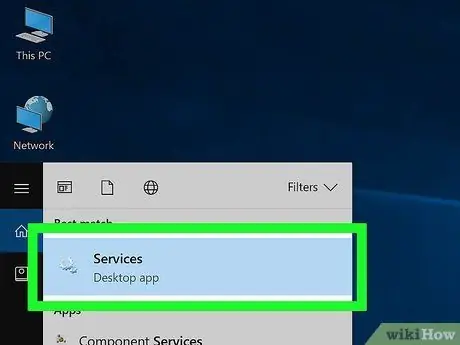
Step 1. Open the Windows Services window
Click the search field on the Windows taskbar, then type the keyword services. At this point, select the relevant icon from the results list.
-
If the search field is not visible on the taskbar, it most likely has been hidden. To search the computer, access the "Start" menu by clicking on the icon
then type in the keyword you want.
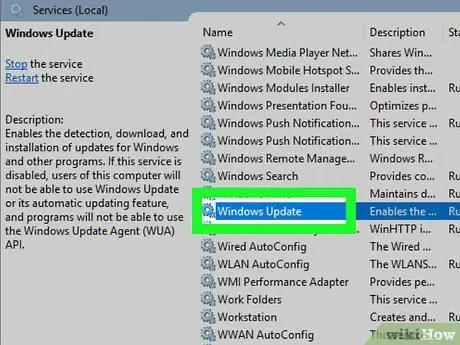
Step 2. Locate the "Windows Update" service and double click on it
You will most likely need to scroll down the list of Windows services.
Alternatively, select the "Windows Update" item with the right mouse button and choose the Properties option from the context menu that appeared
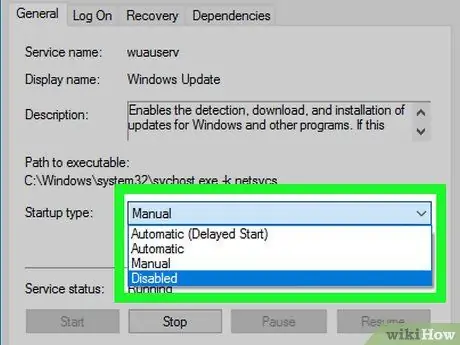
Step 3. Access the "Startup type" drop-down menu and choose the Disabled item
To reactivate the service, simply select the Automatic option from the same drop-down menu
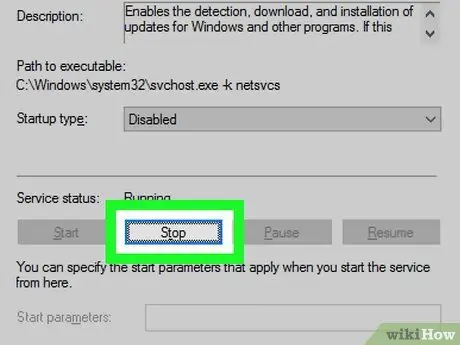
Step 4. Stop the "Windows Update" service
To do this, simply press the Stop button located under the "Startup Type" drop-down menu.
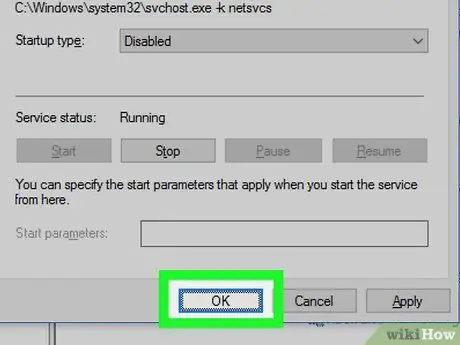
Step 5. Save your changes and close the window
To do this, simply press the OK button and close the "Services" window.
Method 2 of 4: Install Updates Manually Through a Consumable Connection
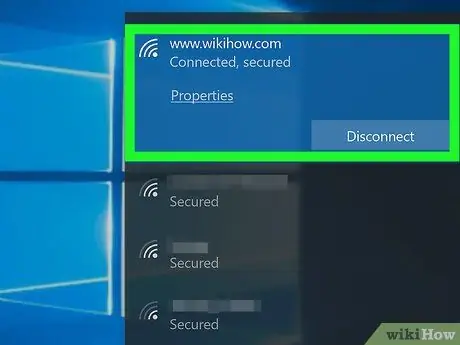
Step 1. Connect your computer to the internet
Click the WiFi connection icon
or the Ethernet network connection located in the lower right corner of the desktop on the taskbar within the Windows 10 notification area.
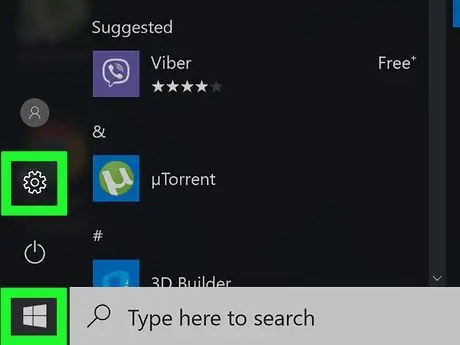
Step 2. Launch the "Settings" application
To do this, access the "Start" menu by clicking on the icon
and select the gear-shaped "Settings" icon

Alternatively you can press the hotkey combination ⊞ Win + I
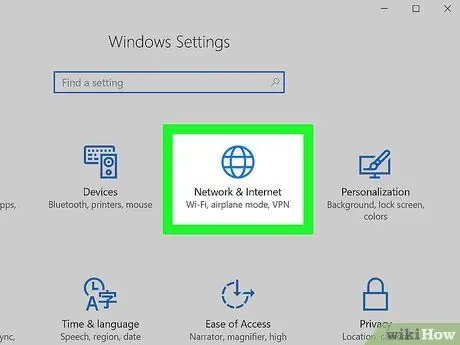
Step 3. Choose the Network and Internet option characterized by the icon
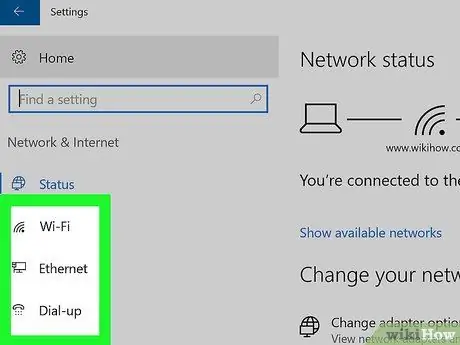
Step 4. Select the currently active network connection using the menu on the left side of the window
You will most likely need to select Wi-Fi or wired connection via Ethernet network cable.
Alternatively, select the "Edit connection properties" link on the main screen of the "Status" tab of the "Network and Internet" page and go directly to step number six
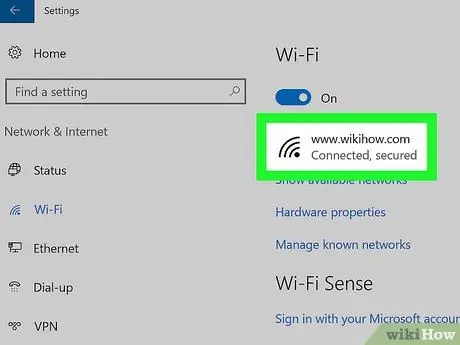
Step 5. Select the name of the currently active network connection shown in the center of the page
Normally there should be only one active connection and therefore only one name.
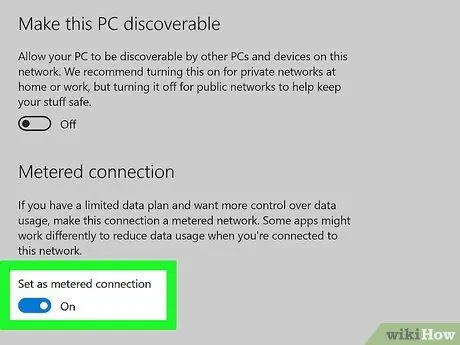
Step 6. Set up a metered connection
To do this, activate the "Set as metered connection" slider by moving it to the right
. At this point the chosen connection will be configured as a metered connection.
-
To restore automatic Windows updates, simply disable the "Set as metered connection" slider by moving it to the left
Method 3 of 4: Disable the Automatic Update of Windows Store Apps
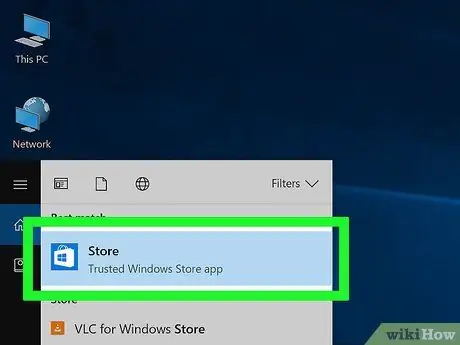
Step 1. Launch the Windows Store app
To do this, click the icon

located on the Windows taskbar. Alternatively, you can perform a search using the appropriate Windows 10 feature.

Step 2. Click your profile icon located on the left of the "Search" field located in the upper right part of the window
This will bring up a drop-down menu with different options.
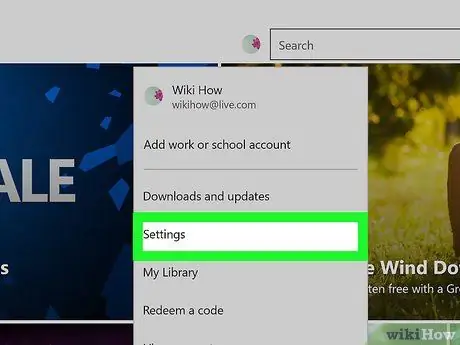
Step 3. Access the Windows Store configuration settings
To do this, choose the Settings item from the menu that appeared.
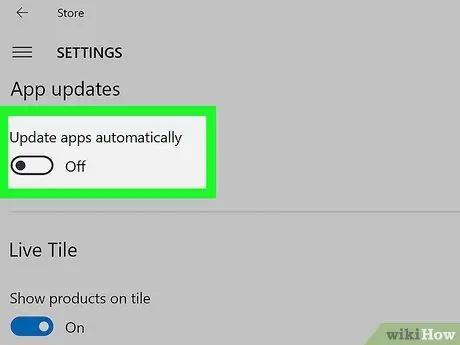
Step 4. Disable automatic updating of applications downloaded through the Windows Store
To do this, turn off the "Update apps automatically" slider by moving it to the left
. It's located at the top of the Windows Store settings page.
In case it is already disabled, it means that the applications installed through the Windows Store are not automatically updated
Method 4 of 4: Disable Automatic Driver Update
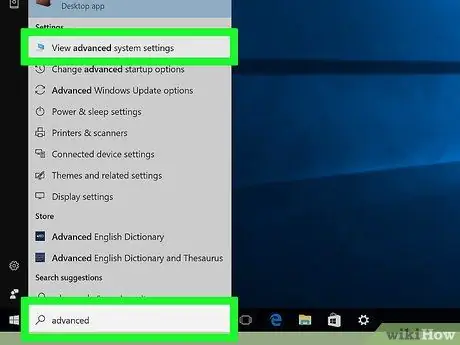
Step 1. Enter the "System Properties" window
To do this, search your computer using the appropriate text field on the taskbar and the advanced keyword. Choose the option "View advanced system settings" from the list of results that appeared.
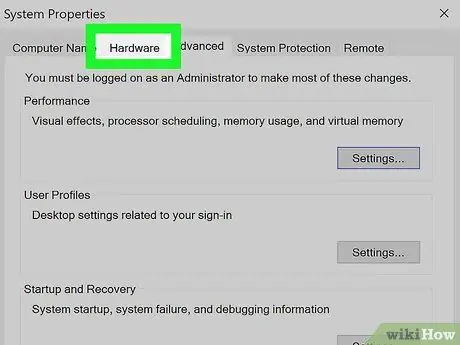
Step 2. Access the Hardware tab located at the top of the "System Properties" window
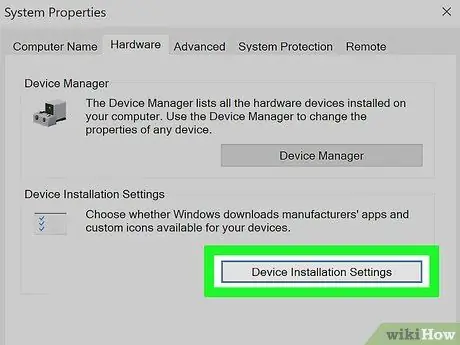
Step 3. Open the "Device Installation Settings" window
To do this, press the Device Installation Settings button.
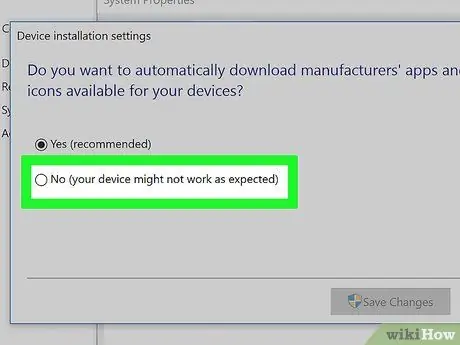
Step 4. Disable automatic updating of drivers and icons
To do this, select the "No" radio button located within the new pop-up window that appears.
If the option in question is already selected, it means that automatic driver update is already disabled. In this case you will simply have to close the window that appeared by clicking the ✕ icon in the upper right corner
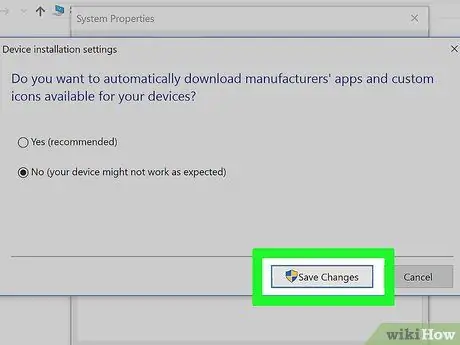
Step 5. Save the new settings
To do this, press the Save Changes button characterized by a small blue and yellow shield on the left side.
Advice
Microsoft typically releases new updates for Windows every second Tuesday of the month. This event is known as the "Patch Tuesday". If you have chosen to download and install new updates manually, be sure to do this on a regular basis every "Patch Tuesday"
Warnings
- Disabling the Windows Update service will make your entire system vulnerable to viruses and malware. For this reason, all experts strongly advise against turning off automatic Windows updates.
- There are many articles online that recommend using the Windows Group Policy Editor to manage the Windows Update service. However, this procedure is no longer feasible due to the release of the Anniversary Update for Windows 10.






